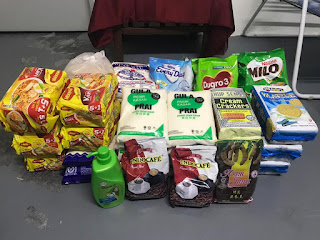Coming to the Siddhas I came to know about karma. I come to know why I was here and where I was heading. Rather than let us sweat it out trying to figure a way out of the mess that we had brought upon ourselves, the most compassionate Agathiyar gave us a clue, a means, a way and a solution. He gave us atonements or remedies (Parikaram) to carry out. We took heed of it. Changes took place in good time. They gave us hope, provided we had faith and belief in their words and executed their directives.
Lama Surya Das writes in his "Awakening the Buddha Within", Bantam Books, 1997,
Buddhist teachings reveal that negative karma does have one positive facet or aspect. It can be repaired.
That is the magic word that we all hoped for.
He continues,
This makes everything workable. We can in fact expiate our negative actions through acknowledging and confessing to our conscience our misdeeds with sincere repentance and regret. By vowing not to do such evil again, by saving lives, protecting creatures and so forth, Buddhist practitioners learn to purify and transform bad karma and actually exhaust its impact eventually becoming free of it and liberated from such consequences.
He shares the Buddha's message on karma.
In the dharma there is no eternal hell. Nothing is eternal. Everything changes. When karma is expiated it is exhausted and then even the worst sinners can move onward and upward.
Lama Surya Das says although our deeds are the seeds of our future destiny, if one repents, atones and makes reparations by living his life differently, changes take place. He has a solution for us based on the ancients,
It is said that four actions have to take place first to initiate the full effect of negative karma: The act has to be done intentionally; the act has to be accomplished; the act is not regretted or repented for and finally the act is not atoned for.
When all these four conditions are present it contributes to the full weight or impact of the karmic result. The full effects are then reaped. Without all four, there is a possibility to transform it, much easily. Regret and repentance alone lifts the karmic burden.
Just as Agathiyar mentions two distinctive ways to uplift oneself, through Taanam or charity and Tavam (all forms of worship, austerities and meditation), Lama Surya Das too points out to two merits that one needs to accumulate.
In order to reach enlightenment and nirvana, we must accumulate two kinds of merits: Merits from virtuous action and those that comes from wisdom, insight, understanding and awareness.
Finally Lama Surya Das summarizes it beautifully,
When we transform our lives, we ourselves become transformed. It is a spiritual rebirth in this very life. We don't have to wait for an afterlife of some kind. This is how we can usher in the kingdom of heaven in this world, in our homes and community. We need not wait.
Charity and service seemed to have a rippling effect on the home-front. We at ATM (AVM) learnt to give following in the footsteps of Sri Krishna and Sri Dewy of Pothihai Tharma Chakram (PTC). Thedal Ulla Thenikal (TUT) from Chennai took the cue from us. Shanga, Arul, Tanajayan, Dr Janar, Vevagaran and many others joined PTC, seeking out the deserted ones and handed out meals. Persatuan Teman Setia (PTS) came to assist them. Besides coming together to purchase, prepare, and distribute food parcels to the hungry, these wonderful souls started involving their families too to do this act of dharmam or charity. Bala Chandran brought his entire family in. They carry out this monthly event at a home for the mentally and physically challenged. They take to the streets too to distribute buns and drinks. Stan and Vinthamaray brought their family members to identify deserving families and distribute groceries too besides feeding the homeless. The Rajah family do their part in their vicinity besides joining the main team. Soon individuals from PTS and PTC began cooking and distributing food to the unfortunate too, doing their bit in bringing cheer to the forgotten few. Suren never fails to do his bit when traveling overseas. Gunalan gives handouts to children in the homes. Arul and Dr Janar too have begun to cook, pack and distribute food at other times, besides the scheduled days of conducting the soup kitchen. These individuals and wonderful souls have proved that we do not need numbers or an organization to do good deeds, an individual can bring change to the lives of others! Bravo, Syabas to all the members of this family.












